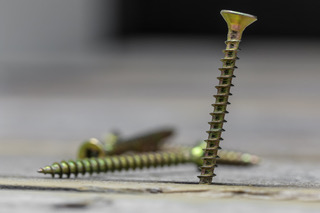Hidden Mosquito Breeding Grounds Around Manchester Homes

Water scopes in outdoors stores stagnant water and breeding ground for mosquito
Anyone with a home in Manchester knows the drill: a warm summer evening enjoying a drink on a porch can quickly turn into a battle against pesky mosquitoes. Manchester boasts a humid climate and plentiful water sources, thanks to the nearby Merrimack River, all ideal components for mosquito breeding. And these pesky creatures do not spawn from nowhere; they are probably breeding in your own yard in places you would never guess. They have a knack for using everything from neglected flower pots to blocked gutters to set up their nurseries right at your doorstep.
The secret to overcoming this battle is locating and removing these breeding locations before they become a real issue. If you have a bad infestation, mosquitoes control services have targeted solutions that can create a barrier that will protect your family all season long.
5 Hidden Mosquito Breeding Grounds Around Manchester Homes
-
Clogged Gutters and Downspouts
During Manchester’s usual spring rains, your gutters save much more than the leaves in the fall. Mosquito nurseries are formed in stagnant water in blocked drains. According to Manchester Public Works, the city sees an estimated 43 inches of rain each year, making it just about ideal for pooling water in unkempt gutters.
-
Plant Saucers and Decorative Containers
Hundreds of mosquito larvae could be swimming in that ornamental planter sitting on your deck. Even tiny amounts in plant pot saucers, birdbaths, or decorative pots can sustain whole generations of mosquitoes. Ensure these containers are emptied and refilled every week.
-
Pool Covers and Tarps
Backyard pools are very popular with Manchester residents, but when poorly maintained pool covers stop working or catch rainwater and debris. These cesspools are hotspots for mosquitoes to breed. Even a small puddle on pool covers can produce hundreds of mosquitoes in just a few days.
-
Tire Swings and Outdoor Equipment
Tires, wheelbarrows, and outdoor toys are a breeding ground for mosquitoes. According to the New Hampshire Department of Health, one tire can breed more than 10,000 mosquitoes in a season! Vigilantly examine playground equipment, grills, and lawn furniture for the presence of standing water.
-
Foundation Drainage Issues
Due to poor drainage, persistent puddles surround Manchester homes. These regions are typically overlooked but offer reliable breeding areas during the mosquito season. Look near where downspouts empty and around basement window wells.
Mosquito Health Risks For You
- West Nile Virus: The leading mosquito-borne disease in New Hampshire, it causes fever, headaches, and body aches in infected patients.
- Eastern Equine Encephalitis: Rare but serious, this disease has been identified in New Hampshire mosquitoes and may cause severe neurological disease
- Allergic Reactions: Mosquito bites cause significant allergic reactions (particularly in children and sensitive persons )
- Secondary infections: Bacterial skin infections requiring medical treatment may occur when mosquito bites are scratched
- Trouble sleeping: They disrupt your sleep, and buzzing and biting while sleeping means less daily productivity and health
- Limiting Outdoor Activities: High populations of biting mosquitoes keep families inside during the height of outdoor play times
When To Call For Professional Help?
Understanding when DIY mosquito control goes only so far will save you weeks of anguish. When you eliminate standing sources and you still find mosquitoes, it is time to call a professional. Custom treatment methods are required for large properties that possess several water features, neighborhoods with high mosquito activity, or persistent breeding places that cannot be reached.
If you notice swarms during prime season or family members are bitten consistently in your yard, then professional mosquito control is necessary. That is why companies like Anchor Pest Services are aware of the unique mosquito challenges Manchester brings, such as the Merrimack River corridor and residential neighborhoods. These pesticides target only the breeding sites of the insect pest while sparing beneficial insects.











